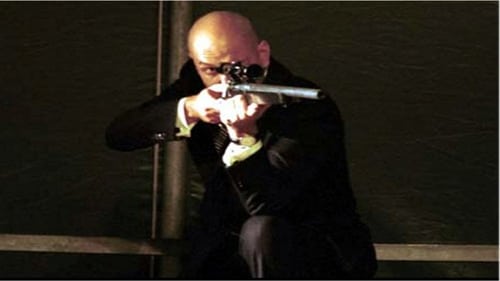
Lucio is an old Soviet general emigrated to Spain after the end of the Soviet period. Natasha is a 12 years old girl, the unknown nephew of Lucio, who is abandoned by his stepfather in the door of the house of his uncle. They don't know each other, they are both lonely people, they don't like each other... but now, the old Soviet general and the strange little girl must live together. This new situation will ask for great sacrifices to the girl and the General, they will have to look inside to find the best of themselves in the worst of their lives.

Inspector Flores
Plauto, the clown, tells us the story of the Circo de las Alegrías. Doña Alegría, owner of the Circus is determined that her son Palevhi, maintain the classic line of the show, which begs for a complete renovation. During the last years, the Circus has been dragging like a dying man until the threat of bankruptcy and unemployment has led his workers to anguish. One night in September, Palevhi decides to inform the big family of the circus the final closure. Tears of frustration give way to the search for solutions.

José
Arián, a young Basque girl, idealistic but naive, joins a ruthless terrorist gang and, hoping to prove her commitment, volunteers to participate in the kidnapping of the daughter of an important businessman.

Eduardo
Diego and Clara have met recently and suddenly have the urge to live together. Afterwards, They find a house to live in. However, strange things start to happen.

19 июля 1936 года в Испании разразилась революция. В маленьком городке близ Барселоны революционерами был разрушен монастырь. Мария, монахиня из разрушенного монастыря, находит убежище в борделе, куда вскоре с миссией освобождения проституток заявляются активистки Организации Свободных Женщин. Некоторое время спустя, попадая под влияние Флорен, Мария вступает в эту организацию и участвует в вооруженной борьбе наравне с другими активистками, которые предпочитают умереть, сражаясь плечом к плечу с мужчинами, чем жить, прислуживая им.

Biography of Julian Gayarre (1844-1890), one of the best tenors of all times. At 19, a professor at the Conservatory of Music in Madrid heard him singing for the first time and offered him a scholarship to continue his studies. His artistic life runs between continued success, becoming the world's greatest tenor. But in 1890, while singing at the Teatro Real in Madrid, a failure in his voice is like a cruel reminder of what would happen a few days later: his death at a young age. The doctors gave a diagnosis, but his friends know that Julian Gayarre died because he could not sing anymore.





